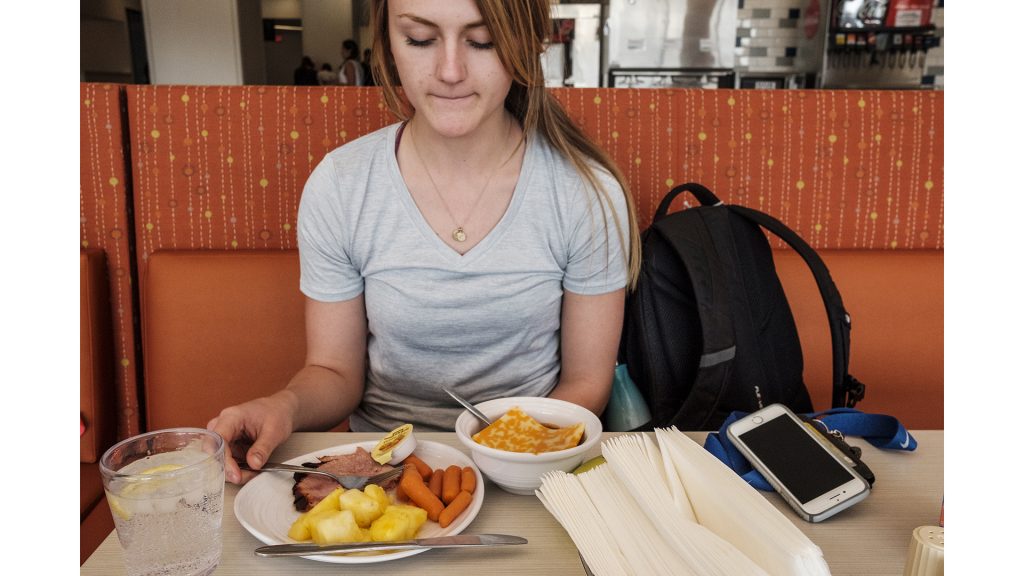Two students are advocating for a group on campus that they say is often overlooked.
Rachel Ryan and Sofie Dollison, two University of Iowa freshmen, met during Honors Prime Time in the fall. Dollison was asking around for gluten-free-food recommendations off campus, and the two bonded over their shared experiences of trying to find options that fit their dietary needs. Both women have celiac disease, an autoimmune disease in which eating gluten causes damage to the small intestine.
“We just kind of noticed there weren’t many options off of campus and on campus for gluten-free options that were edible,” Dollison said.
Ryan said the transition to college has been difficult, especially because so much of the social scene on campus revolves around food. Student events almost always offer food that individuals with celiac disease or a gluten intolerance can’t eat, and even being invited to eat off-campus can be difficult with so few gluten-free options. It can feel really isolating, Dollison said.
“I think in college it’s really difficult because you see pizza nights, and free cookies, and other stuff, and those are events that we can’t participate in,” Ryan said.
Dollison and Ryan created the Celi-Yaks Club to advocate for those with celiac disease and gluten intolerance on and off campus and to provide a space for people to interact and have fun without having to worry about the food they’re eating.
Informational meetings for the club will be held on Wednesday from 7:30 to 8:15 p.m. and Friday 4-4:45 p.m. in the IMU. Ryan said that right now, they’re trying to lay down a base for next fall.
“I’m hoping that it can be a place for people to be comfortable and interact with other people who are going through the same thing, but at the same time, we want to be able to implement solutions and advocate in the community,” she said.
While no official events have been planned as of now, they’re hoping to eventually host events at restaurants with gluten-free options, baking events, and gluten-free days in the community, Ryan said.
They also want to be able to meet with business owners in the community to educate them on what it means to really be gluten-free, such as eliminating cross-contamination.
Dollison and Ryan have worked with University Housing & Dining throughout the year about their dietary needs, and they plan on continuing that conversation with the club.
Laura Croteau, a University Housing & Dining nutrition specialist, said students with dietary needs such as celiac disease and gluten intolerance have the option to call ahead and order a meal to eliminate cross-contamination, and there are also gluten free packaged options in the dining halls, depending on the day.
Croteau said she likes having these discussions with students and getting their feedback on their dining experience.



